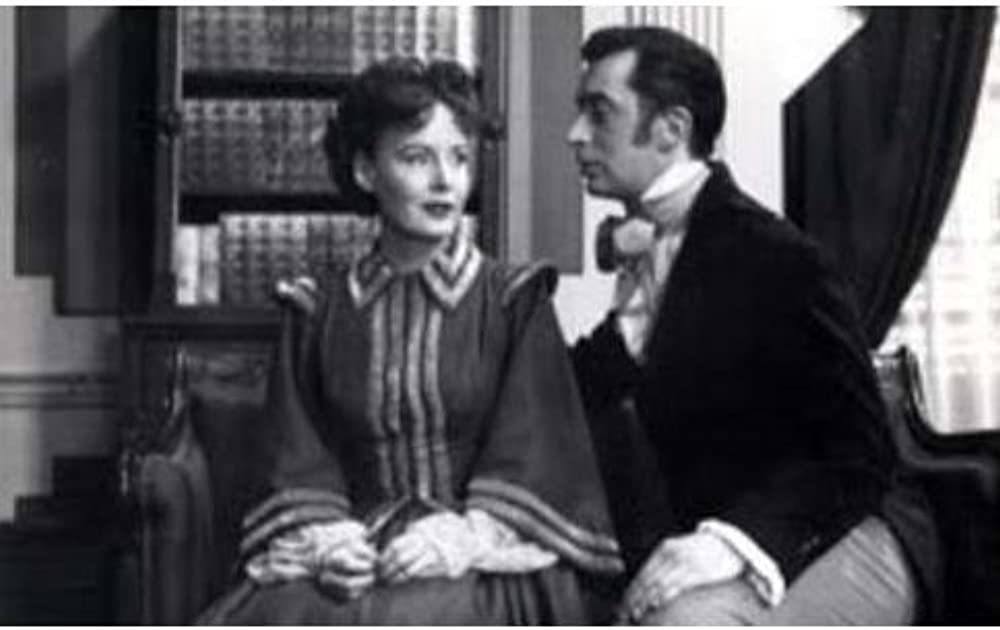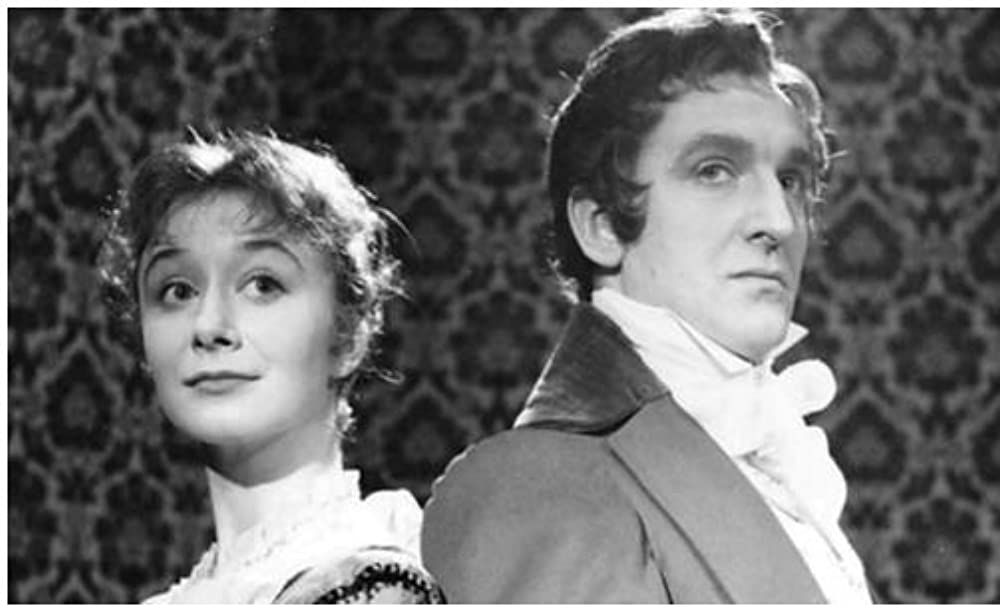“A girl likes to be crossed a little in love now and then.”
Mr. Bennet, Pride and Prejudice, Jane Austen
This is such a great line, for all that it’s an awful sentiment, especially one coming from your father. But on this St. Valentine’s Day – which has its own twisted history – I thought it interesting to examine two of the more famous infamous love stories where rivalries were involved.
Prigstar
A rival in love.

Helen and Paris (and King Menelaus)
In Green mythology, Helen was the most beautiful woman in the world (the face that launched a thousand ships, according to the line from the poem of the same name, from playwright Christopher Marlowe; is that line a double entendre or figure of speech?). She was the wife of King Menelaus of Sparta, but what’s a little matrimony to get in the way of true love, eh? When Trojan Prince Paris saw her, he had to have her, and they ran away – or he abducted her – the story is a bit fuzzy there.
As one would expect, Menelaus was none too pleased, and persuaded his brother, King Agamemnon of Mycenae, to form a king-size army to lay siege to Troy for the rescue of the fair Helen. Ten years, all the big names in fighting (Achilles, Patroclus, Odysseus, Hector, and various gods and goddesses), and some wicked battle strategy (remember the Trojan Horse?) eventually resulted in a Greek victory. The price was steep, however, as all the aforementioned soldiers, save Odysseus, were slain; it took another ten years for Odysseus to reach home, and his journey was full of peril.
So what of Paris and Helen? Paris was not a central figure in the war he caused. He died late in the war from an arguably lucky shot from Greek Philoctetes. The remaining residents of Troy, or Troas, had no interest in harboring Helen. She was returned to her husband, who took her back to Sparta, the journey of which took eight years thanks to those pesky gods that were pro-Troy, and caused them to blow off course past Crete all the way to Egypt.
Cleopatra and Mark Antony (and Julius Caesar)

She would be the last pharaoh of Egypt, the end of the Macedonian-Greek-Ptolemaic Dynasty that had ruled since the death of Alexander the Great. She was described as passionate, beautiful, intellectual, and authoritarian. They were Roman generals who seized power by force rather than birthright, were driven to expand the Empire at all costs, and had Egypt firmly in their sights.
Egypt had been weakened by Cleopatra’s father, Ptolemy XII, who had given so much power and money to Rome in effort to bolster his claim as pharaoh (he was the illegitimate son) that he defined the term figure-head. Rome pretended to care but really only smelled blood in the Mediterranean. Upon his death and 18-year-old Cleopatra’s ascension to co-regency with her 10-year-old brother (and husband; gotta love those Ptolemaic Egyptians), she discovered economic failure, famine, and crippling debt. Her brother/husband opted for a power play and declared himself sole ruler, but countered with one of her own – seeking Rome’s help but on her terms – and left her brother in her dust. And Caesar just happened to be in Alexandria.
“[Cleopatra] embarked in a little skiff and landed at the palace when it was already getting dark; and as it was impossible to escape notice otherwise, she stretched herself at full length inside a bed-sack, while Apollodorus [her servant] tied the bed-sack up with a cord and carried it indoors to Caesar.”
Caesar, thirty years her senior, was sold. Cleopatra’s brother/husband, the following morning, was outmaneuvered. Although she was declared a traitor and the Egyptian army dispatched to attack, Caesar’s considerably larger army arrived from Syria, soundly defeating the young Ptolemy. She was even pregnant with the heir to the Roman ruler. Game, set, and match.
Except that Caesar gave her to her other brother, the 12-year-old Ptolemy XIV, declaring him her new co-ruler and future husband. Ever wily, Cleopatra followed Caesar to Rome and gave birth to Ptolemy Caesar, known as Caesarion (little Caesar). Romans were not impressed; their ruler had no legitimate heirs with his legitimate wife and an illegitimate one from a decadent country was not looked upon favorably in their so-called civilized land.
When Caesar named Octavian his heir, then followed this up by being assassinated, Cleopatra grabbed her “little Caesar” and fled back to Egypt. But the assassination didn’t settle the unrest in Rome, and Octavian had to assert his right to rule against an upstart General: Mark Antony. After years of fighting, the empire was split into east and west, and both needed funds. Antony looked to the south – to Egypt – for his coins. Cleopatra knew Antony from her time in Rome… and knew he was coming to her land.
In Plutarch’s words: “[Cleopatra] came sailing up the River Cydnus in a barge with gilded stern and outspread sails of purple, while oars of silver beat time to the music of flutes and fifes and harps. She herself lay all along, under a canopy of cloth of gold, dressed as Venus in a picture, and beautiful young boys, like painted Cupids, stood on each side to fan her.”
The queen knew how to make an entrance and impression, and just as his Caesar had been before him, Antony was ensnared. He abandoned his plans for funds for his schemes back in Europe and settled in for a long stay with his new paramour. Cleopatra, for her part, used Antony to rid her of her last enemy – her sister, Arsinoe. In the battle between Cleopatra, Caesar, and her first brother/husband Ptolemy XIII, Arsinoe had sided with their brother, and had been banished to the Temple of Artemis in Ephesus. As a token of his love/obsession, Antony had Arsinoe dispatched on the temple steps. Cleopatra, as a token of her appreciation, gave birth to his twins the following year.
A few more deaths, a divorce, and an incestuous marriage take place, but the end is pure Shakespeare. All pretense of détente gone, it was all out war. Antony and Cleopatra met Octavian’s forces in the great but disastrous sea battle at Actium in 31BC, the beginning of the end for the lovers. Antony’s efforts to become the sole ruler of Rome were thoroughly defeated. Believing Cleopatra had allied herself with Octavian to ensure her own survival then committed suicide, he attempted to fall on his sword in true Roman tradition. He failed, and his wounded body was taken to his lover (see the painting at the beginning of this post). Cleopatra had been hiding in a mausoleum, which sounds so very ancient Egyptian for some reason.
There in the sepulcher, Antony succumbed to his wounds, allegedly dying in Cleopatra’s arms. Without the protection of Antony’s troops and now at Octavian’s mercy, she had to know capture meant humiliation at best, torture and execution at worst. The mighty, passionate, intellectual, and beautiful Egyptian pharaoh took her own life, reportedly by allowing a poisonous Egyptian cobra, or asp, to bite her.
- Slang term taken from the 1811 Dictionary of the Vulgar Tongue.
- Information about Paris, Helen, and King Menelaus culled from Storynory, World History, and Greek Mythology. For context, my mythological history perspective is based on Homer.
- I also highly recommend reading The Iliad and The Odyssey if you enjoy mythology in the slightest.
- For information about Cleopatra, Caesar, and Mark Antony, I used The Cleopatra, Julius Caesar and Mark Antony Love Triangle; History of Yesterday; and Cleopatra, Julius Caesar and Mark Antony: how the last pharaoh’s love affairs shaped Ancient Egypt’s fate.







You must be logged in to post a comment.